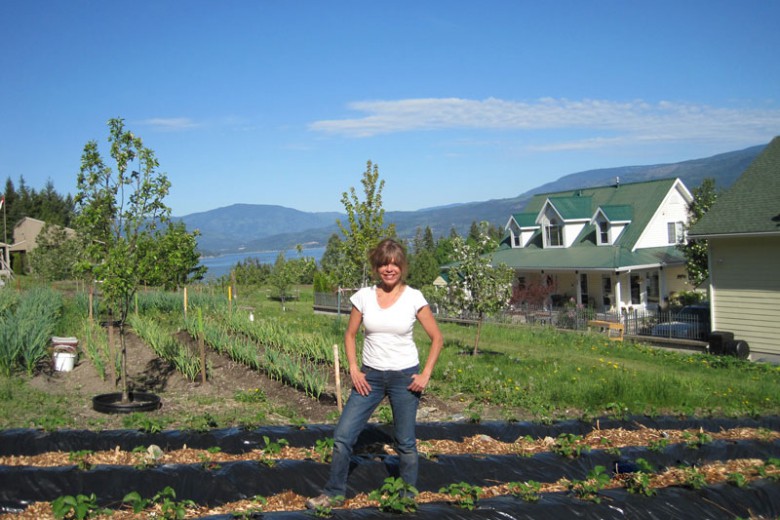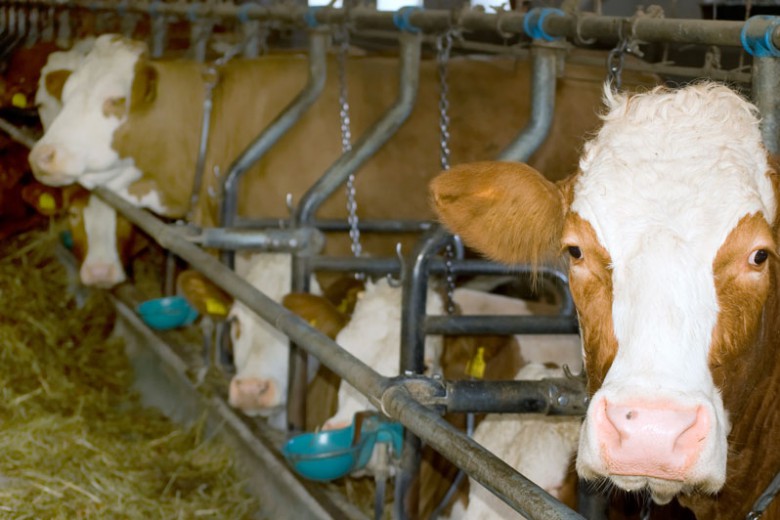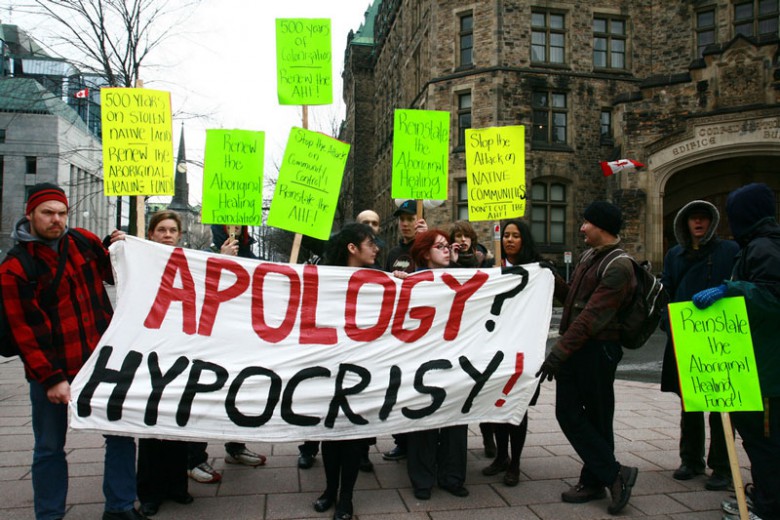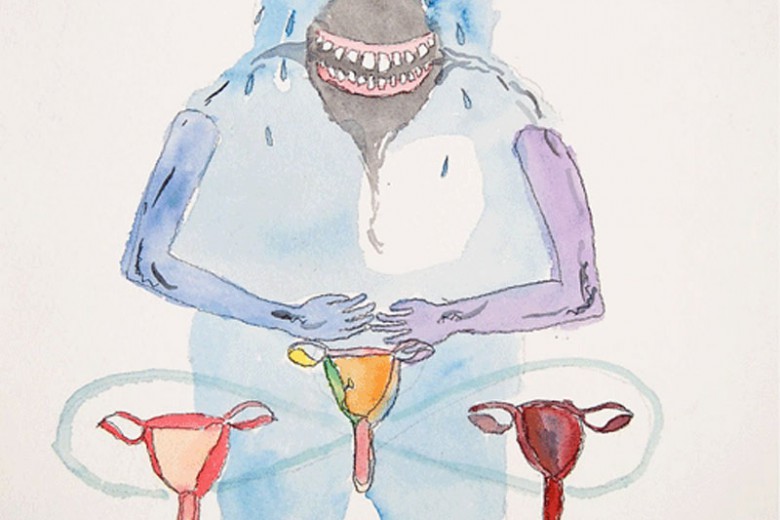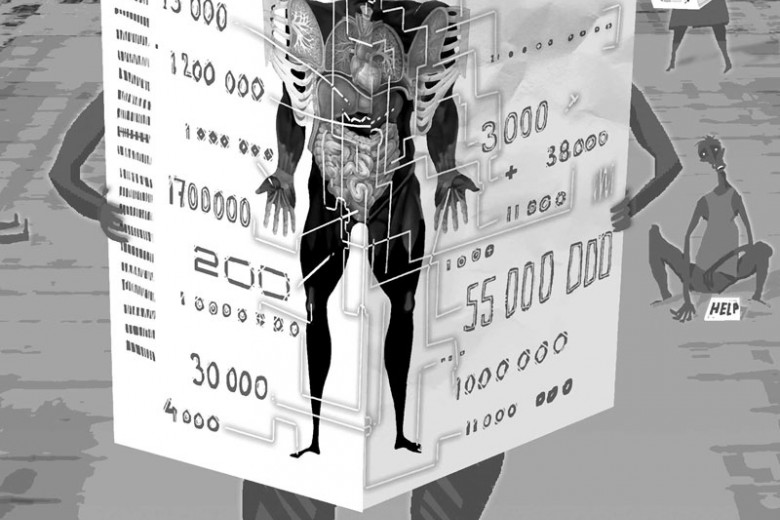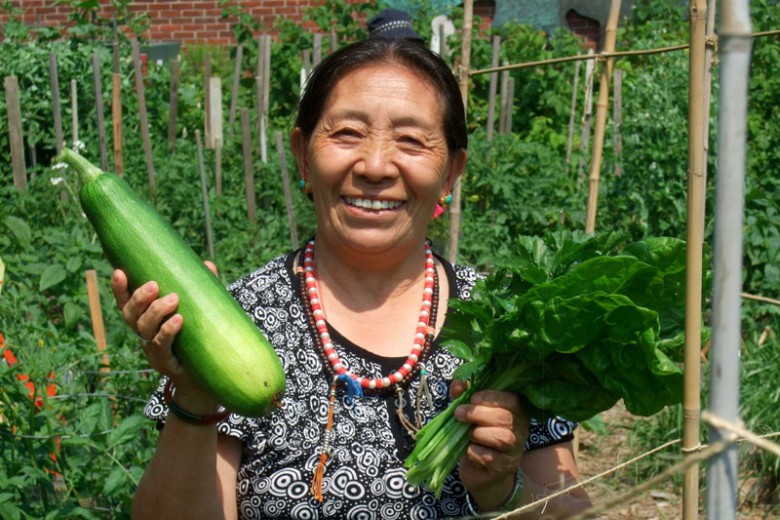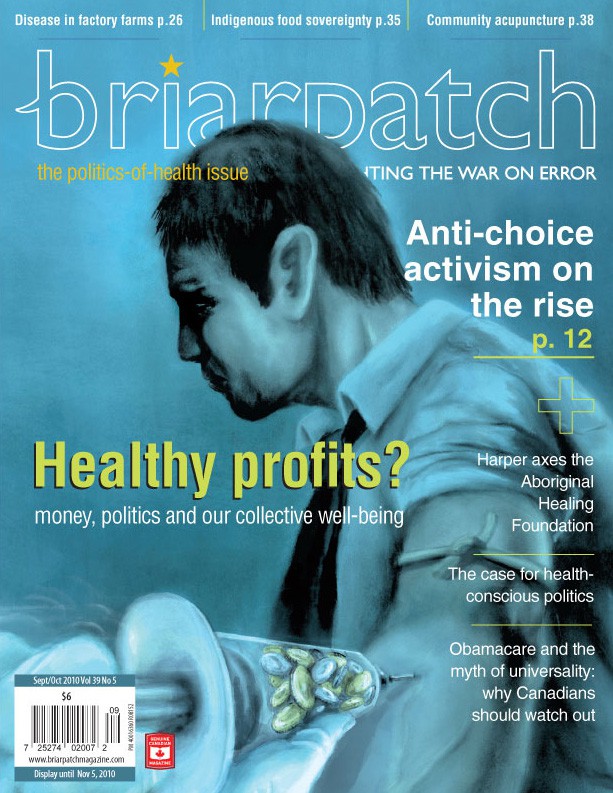
September/October 2010
Politics of health
As perhaps the most universally relevant topic, health care cuts across lines of class, race, nationality, age, gender and political bent, and has the potential to either unite or polarize, to inspire or enrage. Seeking a more holistic understanding of health in our current socio-political context, Briarpatch explores the intersection between the health of our environment, our bodies and our social systems.




